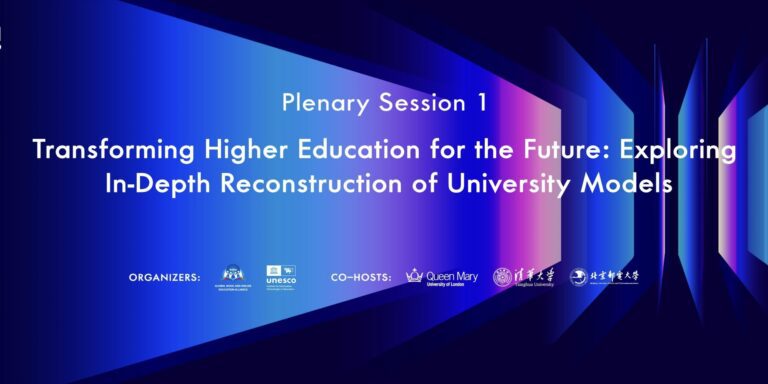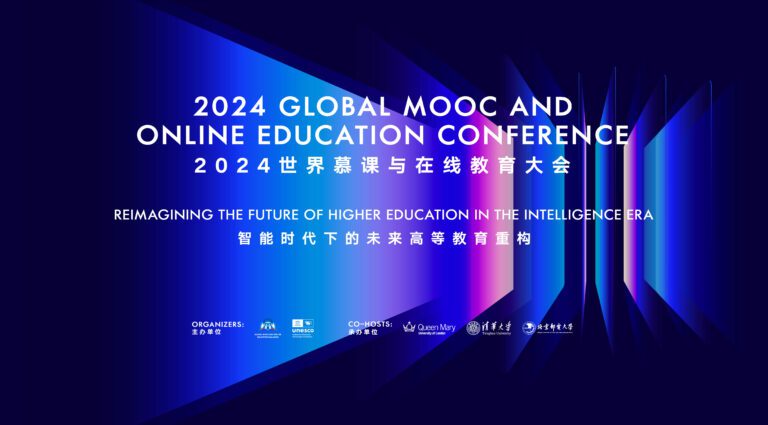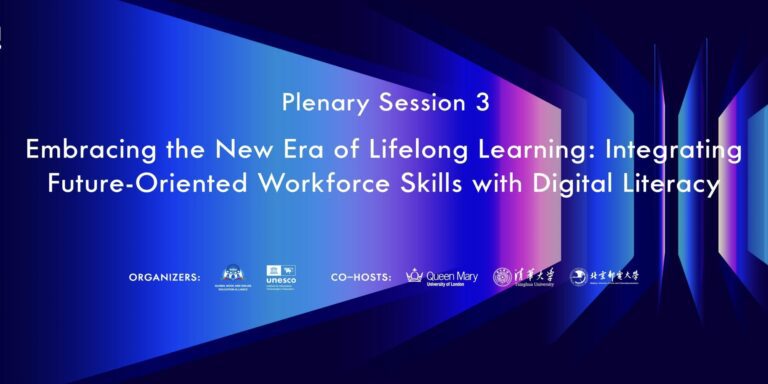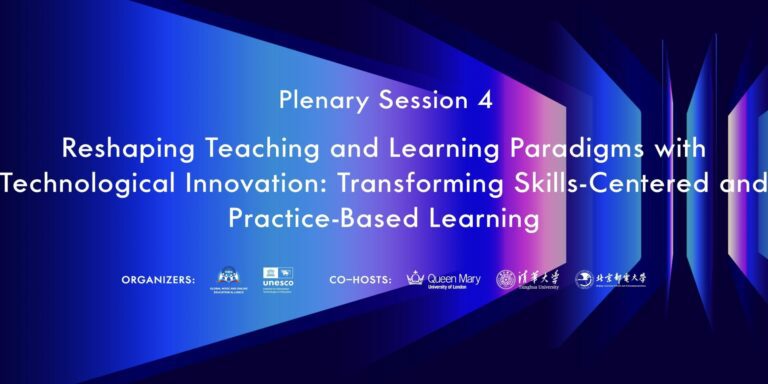Plenary Session 2 of the 2024 Global MOOC and Online Education Conference, titled “Navigating Ethical Considerations of AI: Challenges and Solutions from a Global Perspective,” was successfully held on the afternoon of December 12, 2024, London time. The conference was organized by the Global MOOC and Online Education Alliance and the UNESCO Institute for Information Technologies in Education, with Tsinghua University, Beijing University of Posts and Telecommunications, and Queen Mary University of London serving as co-hosts.
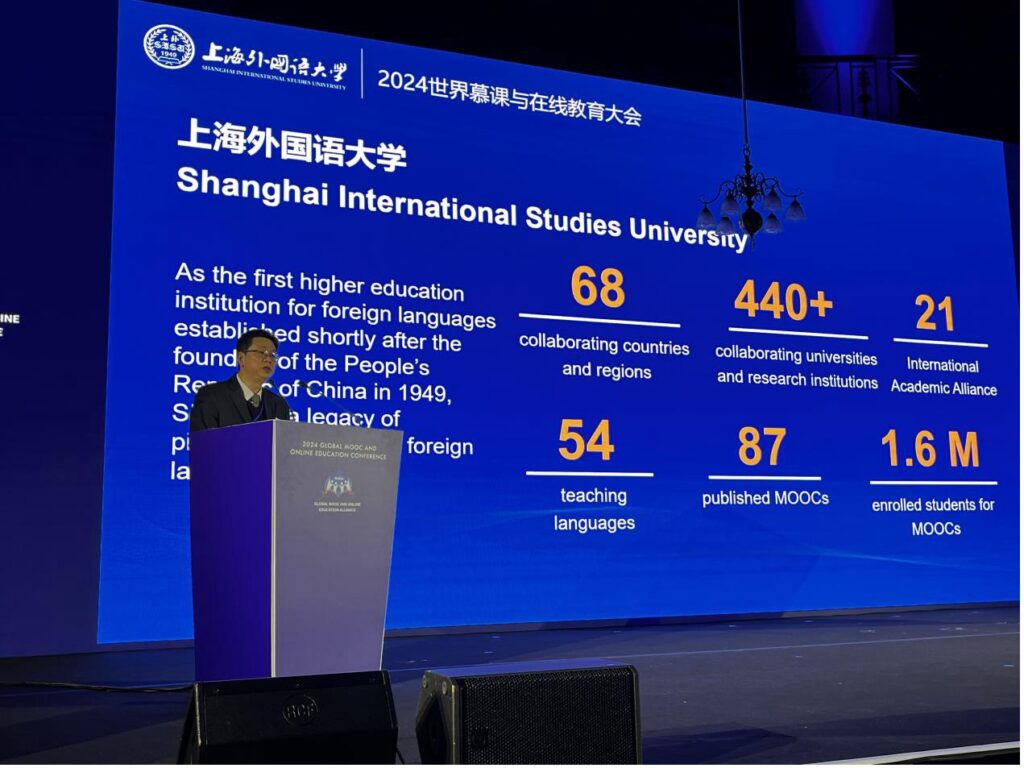
During the Keynote Presentations, Professor Li Yansong, President of Shanghai International Studies University (SISU), stated that the digital era is driving profound changes in the field of education. Artificial intelligence (AI), as a core technological tool, is reshaping the educational ecosystem and upgrading knowledge production models and learning experiences. As a leading foreign language university in China, SISU actively explores the integration of digital education and discipline construction, gradually forming a cross-disciplinary fusion featuring “foreign languages + multidisciplinary integration,” “foreign languages + data intelligence,” and “foreign languages + cognitive neuroscience.” He mentioned that SISU has established a multidisciplinary layout with 54 teaching languages, covering a coordinated development across various disciplines including literature, pedagogy, economics, management, and law, and promotes the global sharing of high-quality educational resources through MOOC platforms. In the future, the university will continue to embrace the technological revolution, leveraging language science as its foundation to promote cross-disciplinary research and development between AI and other fields, exploring new areas of educational innovation, and contributing to the development of global higher education.
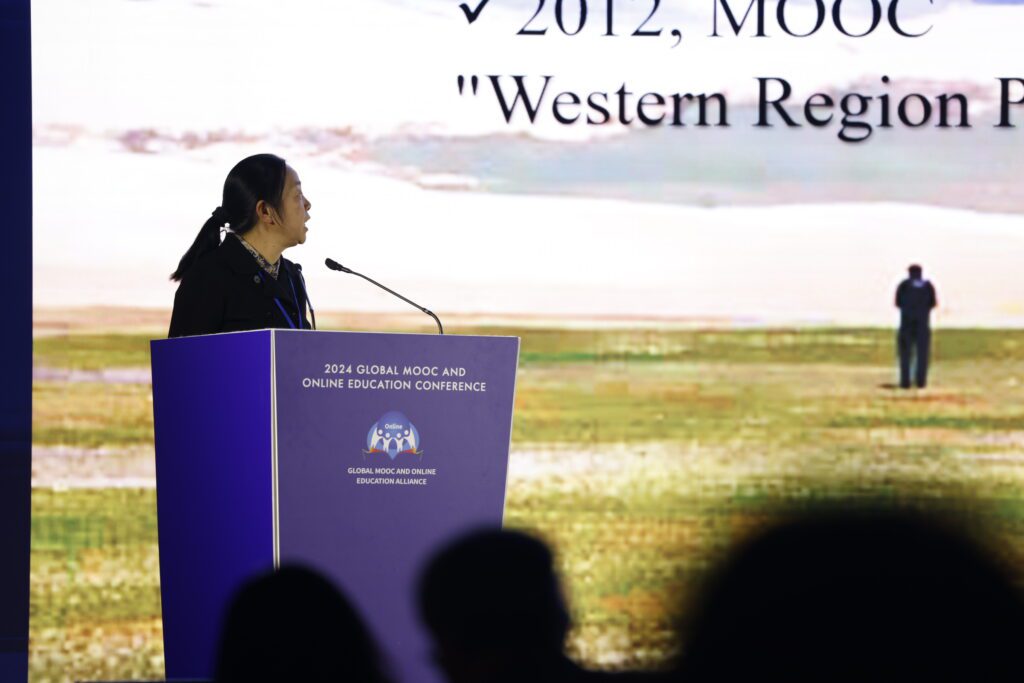
Professor Shi Yuanchun, President of Qinghai University, noted that AI is becoming an important driving factor in promoting changes in higher education, but its development still faces challenges such as ethics, privacy, and unequal distribution of resources. She pointed out that currently approximately one-third of the global population has no access to the Internet, and this imbalance in technology and educational resources is a common issue faced by the world. With the title of “Preventing the Digital Divide and Inequality in AI era”, she shared that Qinghai University, which is located on the western plateau multi -ethnic underdeveloped region, has made efforts to narrow the development gap between the eastern and the western region under the cooperation model like counterpart assistance and has explored the development of AI technology and the digitalization of education. Since 2001, with support from universities in the eastern region such as Tsinghua University, Qinghai University has built its Computer Science discipline from scratch, and in 2012, MOOC was used to improve the teaching level, and MOOC course was also introduced, which effectively promoted the sharing of educational resources and the spread of ecological culture in Qinghai-Tibet region. In the future, Qinghai University will continue to leverage AI technology to promote cross-disciplinary integration, advance educational equity and regional development, and support global educational cooperation and innovation.
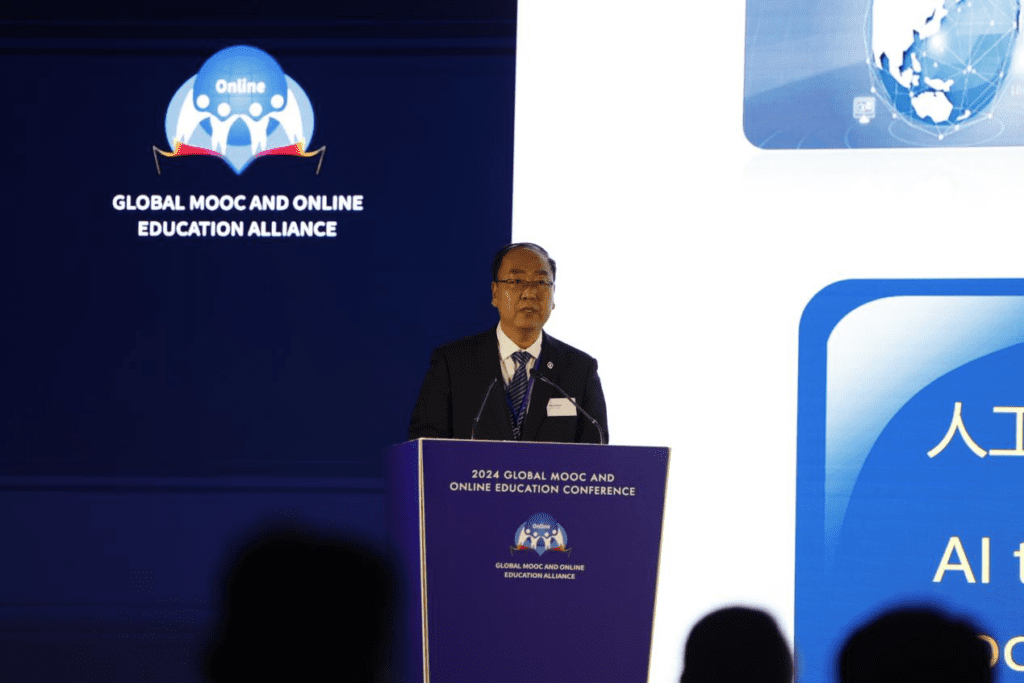
Professor Meng Qingyu, President of Hebei University, presented three key insights on the topic: first, we should improve the governance system for technology ethics and establish ethical boundaries for AI; second, we should accelerate the development of ethical regulations, conditionally recognizing the risks of data collection; third, we should establish a new paradigm for comprehensive governance that optimizes the risk prevention and control for AI in the education sector. He emphasized that the healthy development of AI technology must adhere to the principles of joint consultation, co-construction, and shared benefits, aiming to create an open, fair, and effective governance mechanism. This approach seeks to achieve both value rationality and instrumental rationality, thereby shaping a promising future for AI technology that promotes good and enhances human well-being.
Professor Hong Jun, Vice President of Xi’an Jiaotong University, shared the university’s practices and explorations in AI-empowered education and teaching reform. He stated that AI is bringing opportunities to the global transformation of education, accompanied by challenges such as ethics, privacy, and resource allocation. Xi’an Jiaotong University has promoted multidimensional reforms such as “AI + majors”, “AI + courses”, “AI + teaching”, “AI + learning”, “AI + evaluation”, “AI + resources”, and “AI + platforms” through systematic deployment and categorized implementation. The university has reconstructed its knowledge system, offered an AI major, specialized directions, general education courses and foundation courses, created multimodal data resources, smart classrooms, and innovative teaching models. Hong Jun noted that Xi’an Jiaotong University pioneered a real-time education quality analysis platform to accurately assess teaching effectiveness and enhance student ability development. He emphasized that future education should focus on the growth patterns of students, use AI technology to improve talent training quality, pay attention to AI ethics and intellectual property protection, and continuously optimize teaching quality and learning outcomes.
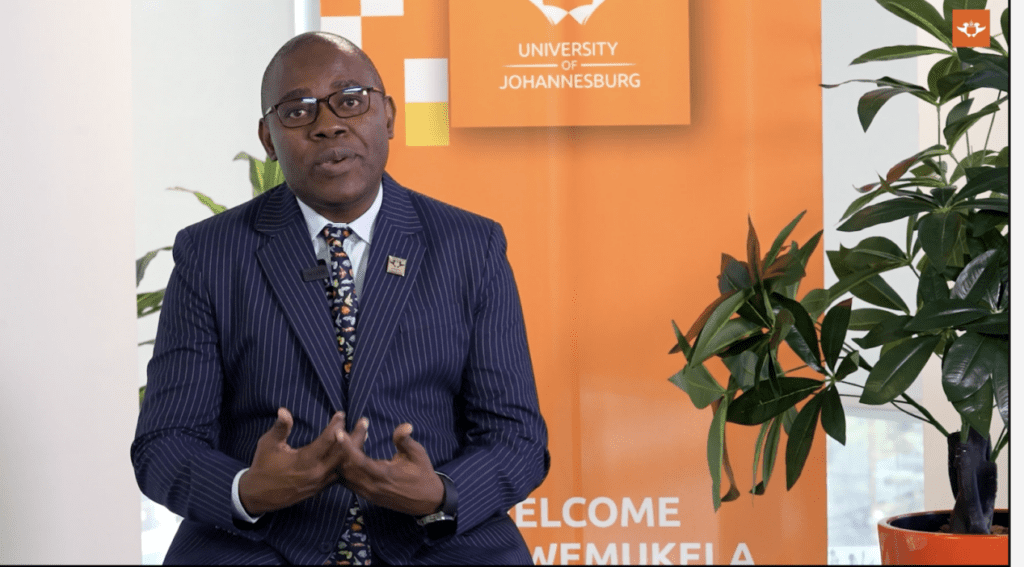
Professor Letlhokwa Mpedi, Vice Chancellor and Principal of The University of Johannesburg, stated that higher education needs to redesign educational models in response to the changes brought by AI. The University of Johannesburg has been strengthening interaction and communication through online course platforms and utilizing AI to help students overcome challenges, enhance future skills, and obtain opportunities for lifelong learning to adapt to the constantly changing global environment. He believes that higher education should be personalized, socially driven, and inclusive to meet the needs of more learners.
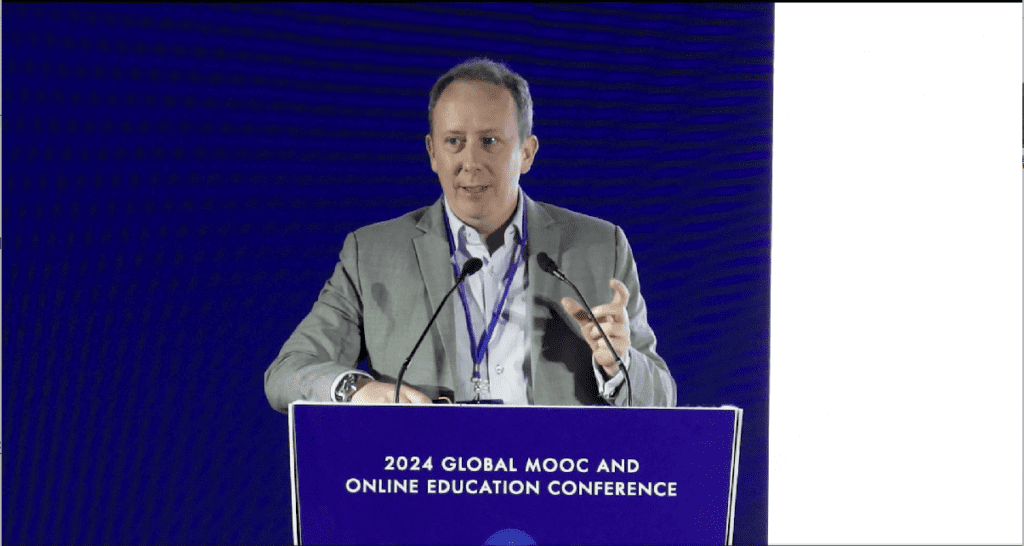
Dr. Sean McMinn, Director of the Center for Education Innovation of The Hong Kong University of Science and Technology, proposed that the continuous development of new technologies brings more challenges and requires ongoing deepening of global cooperation under an overall framework. Students at The Hong Kong University of Science and Technology widely use AI tools for content creation, which has made teachers realize the need to acquire new skills. In the face of the rapid development of AI tools, universities need to find the right development direction, pay attention to ethical issues, and address the challenge of unbalanced technological development.
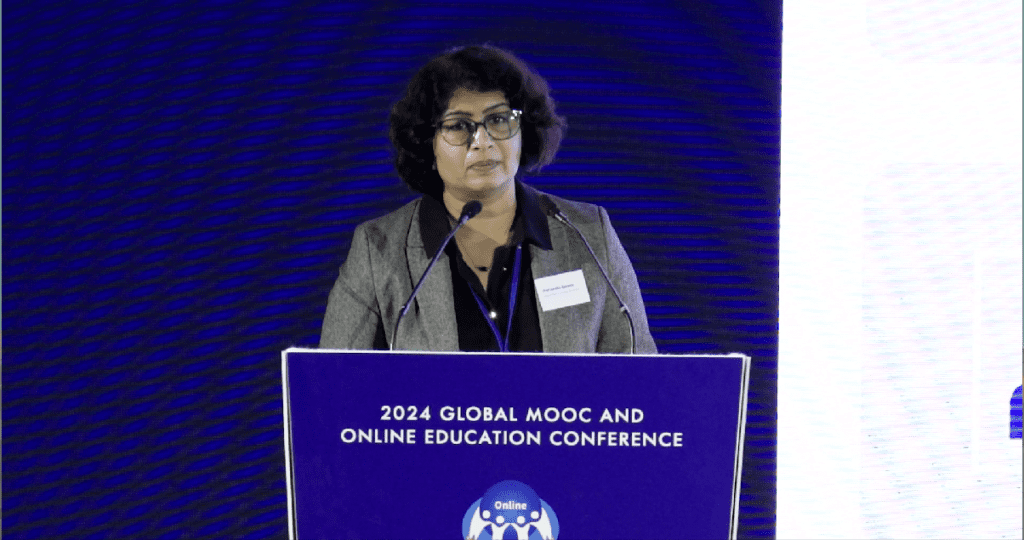
Professor Amitha Ranauta, Professor in Professionalism Education of Queen Mary University of London, believed that AI is playing an increasingly important role in medical education, but there are still many ethical challenges. She shared the positive effects of applying AI in personalized training and strengthening doctor-patient relationships, while also raising ethical challenges related to patient autonomy, data protection, and diagnostic bias. She stated that in the field of healthcare, attention should be paid to how to correctly use AI, and in the future, it is even more important to ensure the transparency of AI algorithms.
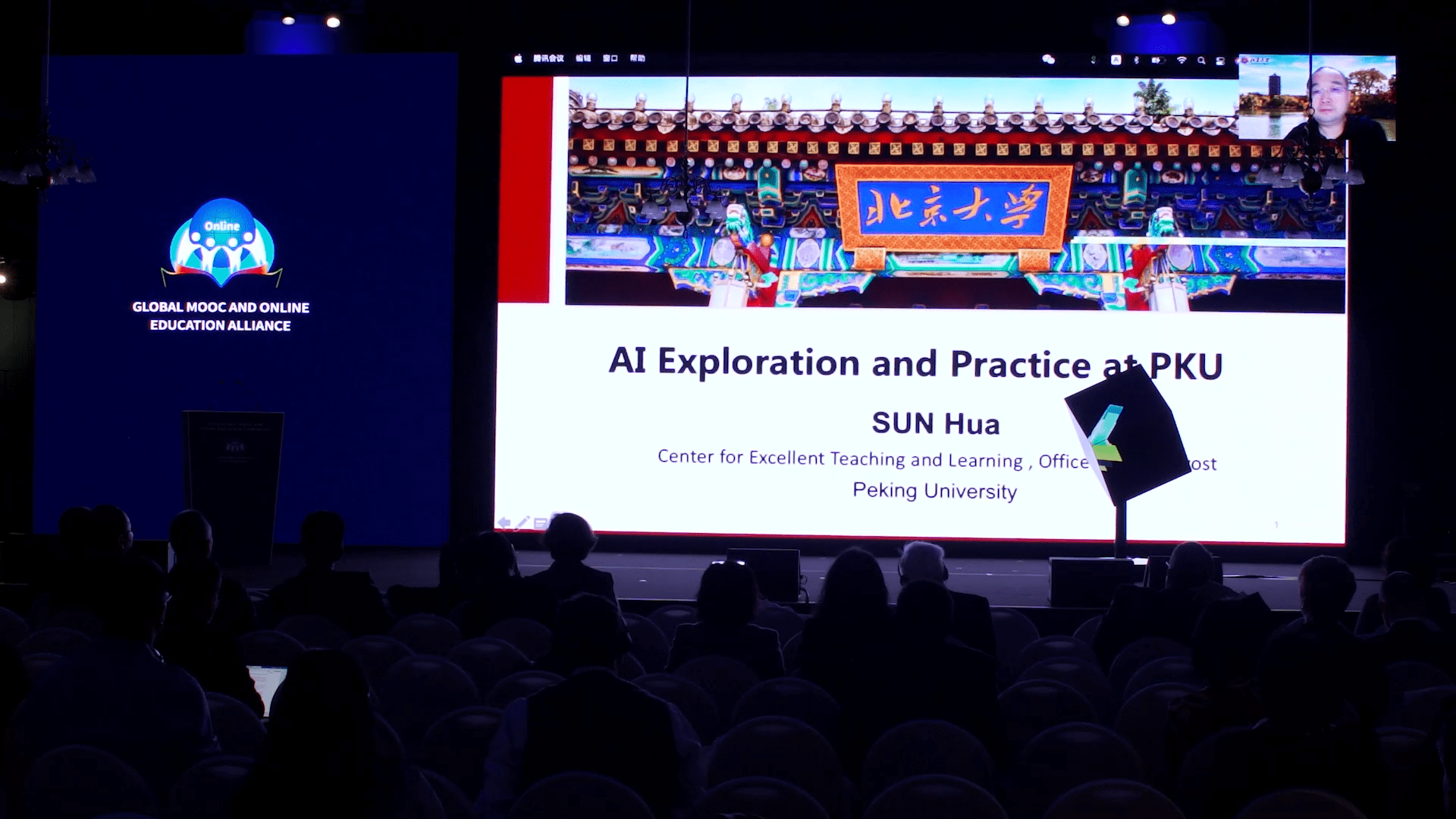
Professor Sun Hua, Director of the Office of the Provost and Director of the Center for Excellent Teaching and Learning of Peking University, introduced Peking University’s innovative achievements in the field of AI-enabled education and the explorations of the Center for Excellent Teaching and Learning in teacher AI skills training and promoting digital education development. He proposed an action plan in four areas to promote the joint development of digital intelligence: guidelines for the application boundaries of AI in higher education teaching, guidelines for higher education, a digital intelligence education framework, and a digital wisdom research center jointly initiated with the University of Cambridge. He looks forward to obtaining broader support to promote more inclusive higher education through digital intelligence.
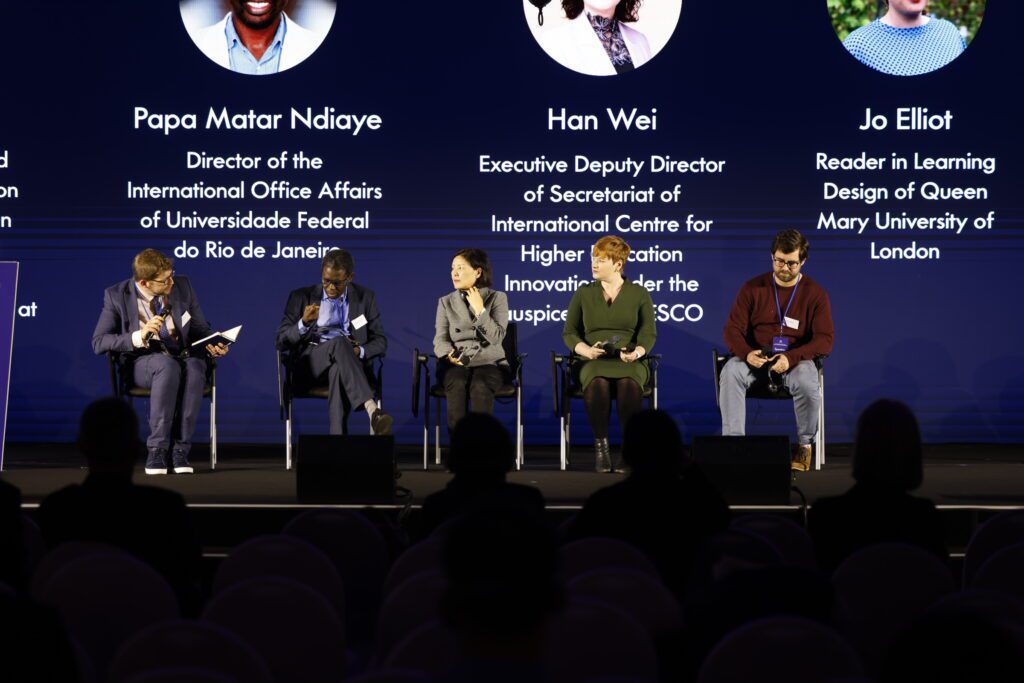
During the Panel Discussion, scholars conducted in-depth discussions on AI ethical risks. Papa Matar Ndiaye, Director of the International Office Affairs of Universidade Federal do Rio de Janeiro; Helge Hoivik, Professor at Dosentforeningen (Association for Associate and Full Professorships); Han Wei, Executive Deputy Director of Secretariat of International Centre for Higher Education Innovation under the auspices of UNESCO; Jo Elliot, Reader in Learning Design of Queen Mary University of London; and Stuart Miller, Reader in Human Biomechanics, WHRI Academic Lead for Equality, Diversity, and Inclusion of Queen Mary University of London, jointly explored the challenges and countermeasures of AI ethics from a global perspective. They offered valuable insights and solutions regarding AI learning platforms, language editing and assisted learning, the relationship between higher education institutions and teacher-student education, how to use AI sustainably and responsibly, a global perspective on using AI, and regulatory and governance issues.
The Keynote Presentations and Panel Discussion were moderated by Li Yifan, Senior Manager of the Tsinghua University Online Education Center and Assistant Secretary-General of the Global MOOC and Online Education Alliance, and David Leslie, Director of Ethics and Responsible Innovation Research at The Alan Turing Institute and Professor of Ethics, Technology and Society at the Digital Environment Research, respectively.

